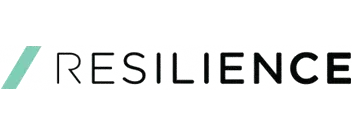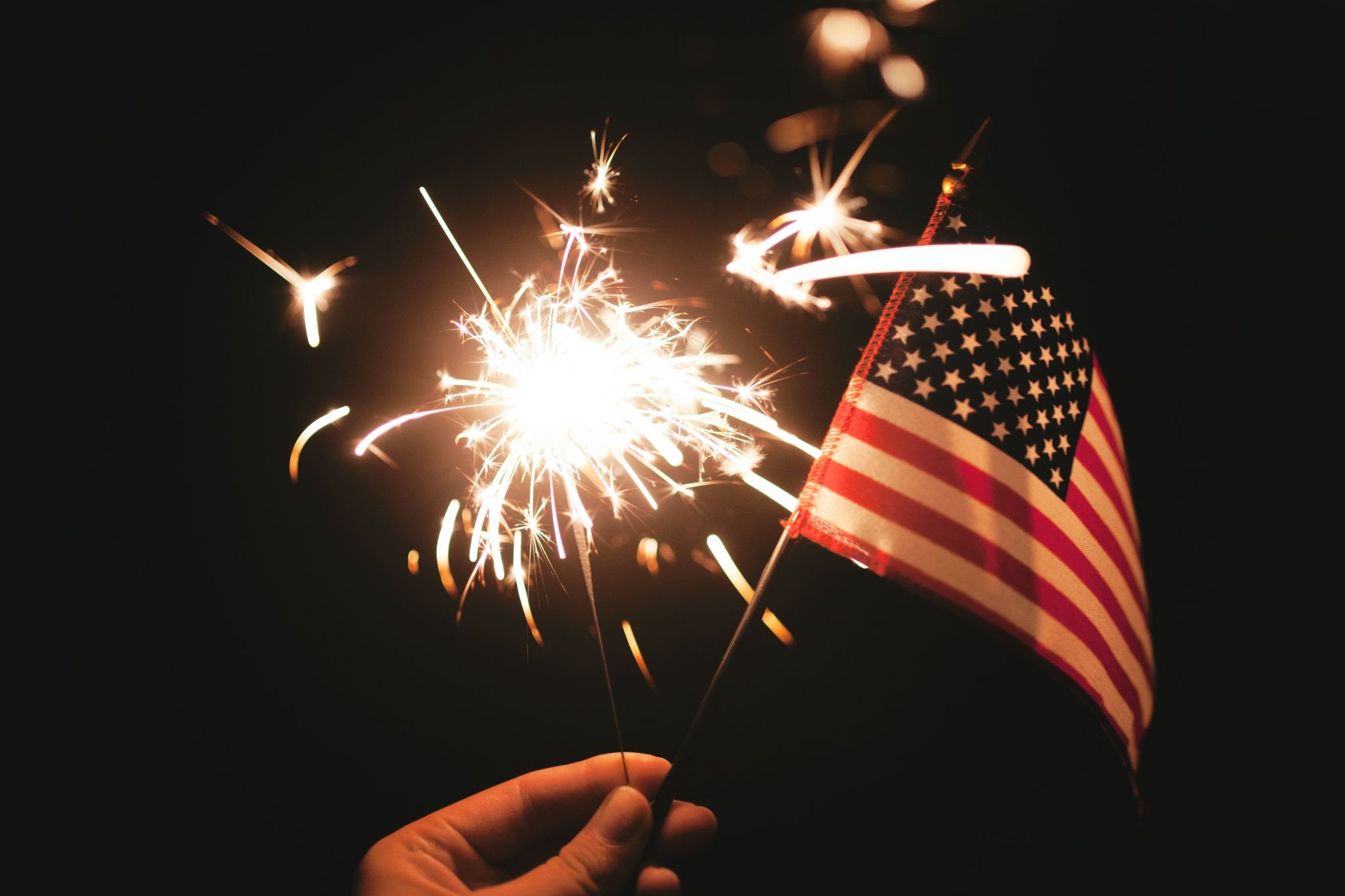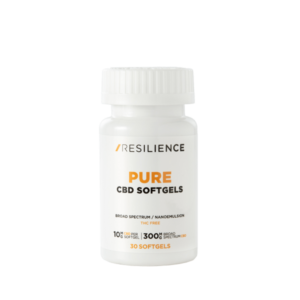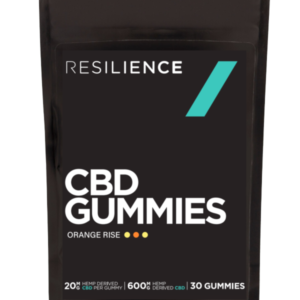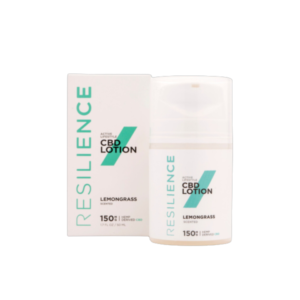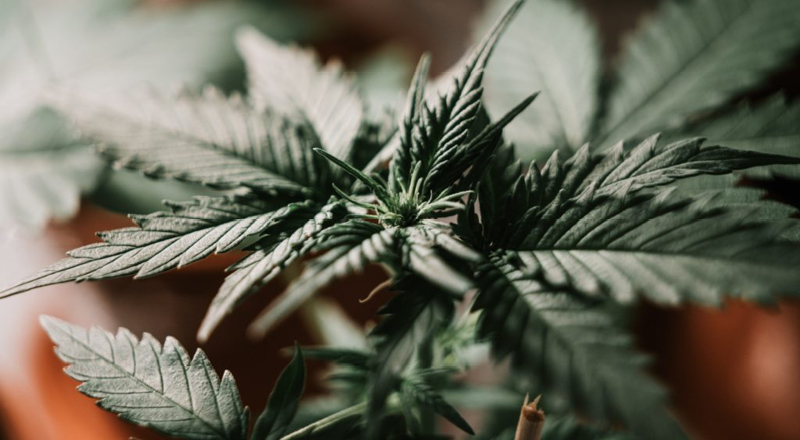
Many people experience immense benefits from taking CBD regularly. Some feel more at ease, are less sore and achy, or notice improved sleep patterns.
Hold on… Is CBD too good to be true?
If you already use CBD or you’re thinking about starting, you might be teeming with logistical questions: Does CBD show up on a drug test? Can you fail a drug test due to CBD?
The short answer? No.
The long answer? Still no, but there’s a little more nuance involved.
Key takeaways:
- CBD itself won’t result in a positive drug test because it’s neither an illicit substance nor something they measure for in standard drug evaluations.
- Certain CBD products may contain trace amounts of ingredients that could lead to a failed drug test, specifically THC (the psychoactive compound in marijuana).
- If properly tested and accurately labeled, broad spectrum CBD and isolates are THC-free and won’t cause a failed drug test, whereas a full spectrum CBD product contains minor amounts of THC levels and could lead to a positive test result, depending on the THC concentration and dosage taken.
What Exactly is CBD?
CBD-short for cannabidiol-is a naturally occurring compound found in the flower of both hemp and marijuana. The societal connotations surrounding these two species may be quite disparate, but in reality, hemp and marijuana are simply two names for the same plant: Cannabis sativa , or just cannabis.
There is, however, a legal distinction between the two:
- Hemp – Cannabis plants with 0.3% or less THC, measured by dry weight; alternatively, cannabis that can’t give you a “high.”
- Marijuana – Cannabis plants with more than 0.3% THC, which is enough to produce a mild high; certain strains have much higher THC levels and create more pronounced effects.
CBD is found in both hemp and marijuana, but it’s not the ingredient that produces a high. When appropriately isolated from the cannabis plant, CBD maintains its therapeutic properties without the “stoned” feeling that accompanies marijuana. It’s used widely as a natural substitute for harsh pharmaceutical treatments, though scientists are still in the process of studying and testing its specific medical benefits.
Drug Testing for CBD
So, does CBD show up on drug tests? Most drug tests follow the SAMHSA (Substance Abuse and Mental Health Services Administration) guidelines. According to SAMHSA, there’s no such thing as a CBD drug test. It doesn’t make the list of illicit substances to check for, so you almost certainly won’t be flagged for having CBD in your system
What they are looking for is marijuana metabolites, measured as THCA (the precursor to THC).
The cutoff for a positive drug test is 50 nanograms (ng) of THCA per milliliter (mL) of urine. A nanogram is a tiny unit of measurement, equal to one billionth of a gram. In a standard urine sample-between 5 and 10 mL -you would need at least 250 ng present to break the threshold for a positive result.
THC in CBD Products
CBD won’t be the culprit of your positive drug test, but your CBD product just might be.
If you’re worried about failing an upcoming drug test, you should steer clear of any CBD formulas containing THC. Small amounts may not register a positive result, but it can be challenging to determine precisely how “small” the small amount is-better safe than sorry, right?
Because of the minimal oversight on CBD companies, even “THC-free” products may contain microscopic trace amounts. So how do you know whether a specific CBD substance is “safe” or not-by SAMHSA’s standards, anyway?
Which CBD Products Pass The Test (Literally)?
CBD oils derived from hemp are one common way of ingesting the substance. But does CBD oil have THC? And what about other types of CBD products?
There are three distinct categories of CBD-some do, some don’t:
- Full-Spectrum – This type of CBD utilizes all of the cannabis plant (the full spectrum, so to speak). This includes small amounts of:
- Cannabinoids – These chemical compounds—including CBD and THC, most notably—connect the brain and the cannabinoid receptors. These receptors relate to several physiological systems, including appetite, physical sensation, memory, and mood.
- Terpenes – These organic aromatic components are responsible for the unique scents of different plants, and some have their own therapeutic qualities.
- Flavonoids – This class of chemicals is found naturally in plants, such as cannabis, but also fruits, vegetables, flowers, and more. They also offer certain therapeutic benefits, including antioxidative, anti-inflammatory, and anti-carcinogenic properties.
- Broad Spectrum – To make this CBD product, they remove the THC but leave everything else found naturally in cannabis, including terpenes, flavonoids, and about a hundred other minor cannabinoids (a broad ingredient list, but not the full spectrum).
- Isolates – In contrast, isolates are made by using the CBD and only the CBD. They remove everything else to create a pure strain.
As long as the products you’re purchasing are labeled accurately, you should be totally in the clear with either isolates or broad spectrum CBD in a drug screening-after all, they should have zero THC. Unfortunately, the poorly regulated nature of CBD production means this isn’t always the case.
If you do receive a positive drug test result (the bad kind of positive, not the good kind of positive-confusing, right?), it may have been for a couple of reasons:
- More THC in the product than advertised – Companies can claim up and down to sell “THC-free” and “0% THC” products. However, if they don’t have anything to back this up, there’s always a chance that there’s more than 0.3% THC, and subsequently, enough to fail a drug test.
- Low levels of THC at very high doses – In theory, a CBD product derived from hemp should have 0.3% or less THC. But if you regularly consume substantial doses—let’s say, 1000 mg at 0.3%—then you could have 3 mg of THC in your system. This could (again, in theory) surpass the threshold for a positive test.
Protecting Yourself From a Failed Drug Test
Just because the CBD industry lacks governmental oversight doesn’t mean you can’t trust any CBD companies. To combat customers’ potential distrust, CBD brands will take additional measures to prove that their products are what they claim they are.
You can still use CBD, even if you have an upcoming drug test on the horizon. Here a few ways to enjoy the benefits of cannabidiol without the repercussions of a positive marijuana test:
- Rigorous third-party testing – Before purchasing any CBD or THC product (regardless of whether you’re worried about a drug test), check their website for third-party lab tests or a certificate of analysis (COA). These results show you the ingredients, potency of different cannabinoids (including THC and CBD), and the presence of any harmful pesticides or other chemicals—sort of like a drug test for drugs. You can see Resilience’s certificates on each product.
- Moderate doses – The higher the quantity, the more likely you are to test positive for marijuana metabolites—even the microscopic trace amounts of THC could add up. If you stick to moderate amounts of well-tested THC-free CBD, your chances of failing your drug test are practically nonexistent.
- Avoid unsubstantiated claims – You should avoid any CBD company that promises to “cure anxiety!” or “treat your arthritis” altogether. CBD is not an FDA-approved treatment for medical conditions or diseases (aside from one prescription seizure medication). CBD may ease your nervousness or curb your exercise-induced inflammation, but claims of therapeutic benefits or, worse still, remedies are a big red flag.
- Stick to isolates and broad spectrum – As long as the company has proof of third-party purity testing, isolates and broad spectrum CBD will be THC-free (or it will contain tiny, negligible amounts, which will show up on their COA).
There’s nothing inherently wrong with a full spectrum CBD product either-except, incidentally , when you’re aiming for a clean drug test. If this, however, is not a concern, you may want to consider the effects of full-spectrum CBD to determine if it’s right for you.
What is Full Spectrum CBD?
Full spectrum uses every part of the hemp plant, including THC (but still in small amounts). The main reason full spectrum stands out is because of the “Entourage Effect.” This refers to the complex interaction between every part of the cannabis plant, known as a sort of synergy. When individual components are removed or isolated, it alters the synergy of the plant.
In this case, it’s believed that the whole is greater than the sum of its parts-full spectrum provides benefits that CBD or THC can’t.
Think of the “entourage” like a football team or jazz band. The quarterback is nothing without teammates to throw to; the saxophone is fine on its own but makes sweet, melodic music when part of a quartet.
If you decide to indulge in full spectrum CBD, drug tests are off the table. Otherwise, enjoy whichever type works best for you-broad spectrum, isolates, full spectrum, and beyond.
Understanding which products of CBD use which ingredient of the hemp plant and how much of it can be important if a drug test is in your future. Knowing where each CBD extract comes from and what it contains can help you understand how it will benefit you and your lifestyle.
Enjoy CBD Responsibly With Resilience
Drug tests shouldn’t inhibit you from enjoying the effects of CBD-after all, it’s neither intoxicating nor an illegal controlled substance. Why should you get in trouble for using a federally legal, naturally-occurring ingredient?
Well, you shouldn’t.
Unfortunately, the responsibility to ensure you’re taking CBD (and not one of those illegal controlled substances) falls partly on your shoulders. By choosing the right brand, you can enjoy CBD’s positive benefits without fearing a positive test result.
Resilience gives you that peace of mind:
- Clearly labeled products – Resilience’s CBD products—oils, topicals, gummies, and more—are classified as either full spectrum, isolates, or broad spectrum. The full spectrum CBD oil contains less than 0.3% THC, which you’ll see prominently displayed on the website—no surprises there.
- Third-party lab testing – Each product is made with integrity and meticulously analyzed to guarantee accurate levels of CBD, THC, and other ingredients. You can see for yourself precisely what’s in each oil, gummy, or capsule. Read more on if CBD gummies work and how many CBD gummies you should take.
The last thing you need is a failed drug test that you don’t deserve. CBD is meant to enhance your life and improve your general well-being. Now that is something you deserve.
Resilience is something you deserve.
Resilience is something you deserve.
 Written by: Michael Tatz | Linkedin
Written by: Michael Tatz | Linkedin
Michael Tatz is the Co-Founder of Resilience CBD, and a passionate leader in the health & fitness world helping others rise to and crush their wildest goals. A former Division 1 college wrestler, Army Officer, and investment manager at Goldman Sachs, he has pushed his body and mind to the limits on the mats, dressed in camo, and in the boardroom.
Today, he spends his time leading Resilience CBD to develop the absolute best recovery products for athletes everywhere. Resilience was founded after CBD personally impacted Michael’s life, and the brand was built to partner with everyday athletes in pursuit of conquering their most difficult challenges, rebounding after their toughest performances, and rising to their goals that once seemed impossible.
